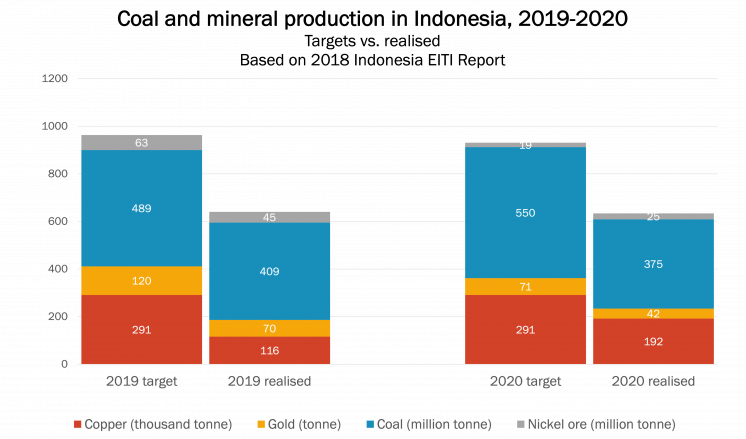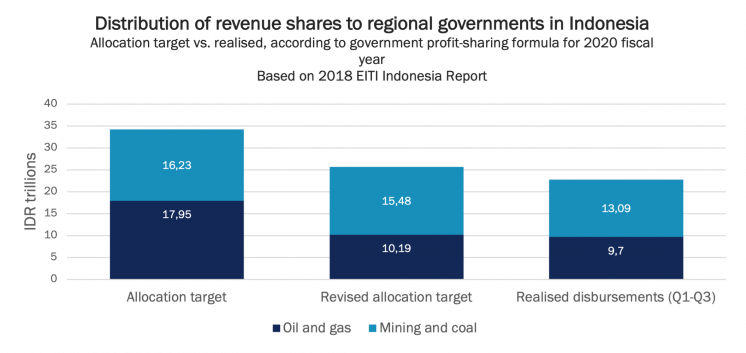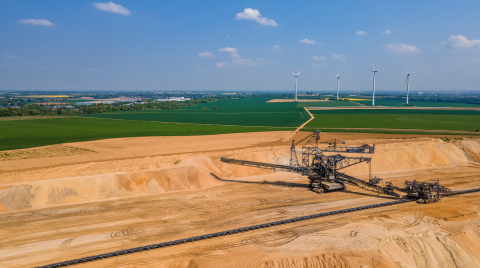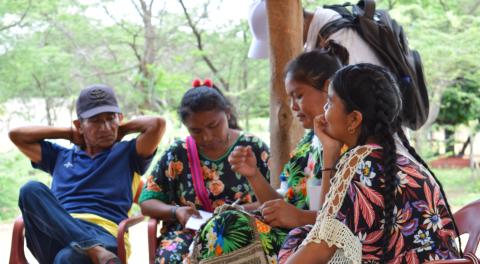
New report shows Indonesia’s extractive revenues in decline
Findings from EITI Indonesia's latest EITI reporting
Indonesia published its latest EITI Report in March, adopting the flexible reporting measures introduced by the EITI Board in 2020. While the report mainly covers the 2018 fiscal year, it also documents the impact of the COVID-19 crisis on Indonesia’s extractive sector in 2020 – including its effects on production, exports and revenues – and highlights some of the government’s response measures.
Oil, gas and mineral resources play an important role in Indonesia’s economy. The mineral and coal sector alone contributed 4.5% of GDP in 2018 and 5% in 2019. Following the COVID-19 outbreak and ensuing oil price collapse, however, the country faced a recession for the first time since 1998.
In addition to prioritising public health measures, the Indonesian government introduced new policies to minimise the adverse impact of the economic downturn on the country’s extractive sector. These included exemptions for extractive companies from certain fees and taxes, as well as investment incentives for upstream activities. The government also twice revised the state budget. In 2020, the government’s revenue from oil and gas amounted to USD 6.5 billion, a 51% decline from its pre-pandemic target of USD 13.2 billion. Mining and coal revenues yielded USD 2.3 billion as of August 2020, a 35% decline compared to the previous year.

Due to the significant decrease in extractive revenues flowing to the central government, subnational governments saw a sharp decline in their share of revenues from the country’s Natural Resources Profit-Sharing Funds (DBH SDA). As of September 2020, total oil and gas DBH SDA revenues disbursed to regional governments amounted to USD 700 million, or 54% of the initial oil and gas allocation target of USD 1.3 billion. Mineral and coal DBH SDA revenues disbursements reached USD 910 million, amounting to 81% of the initial mineral and coal allocation target of USD 1.1 billion. According to the report, disbursements for the second and third quarters were allocated under the condition that regional governments document how resource revenues are used to tackle the COVID-19 crisis.

EITI reporting can help inform debate on how extractive revenues are being used to address urgent priorities to mitigate the impacts of the pandemic. Given Indonesia’s highly decentralised governance systems, timely information on subnational transfers is of particular relevance to stakeholders and citizens whose livelihoods are impacted by the extractive sector. For many Indonesian communities, recent decreases of profit shares will strain budgets and potentially affect the delivery of services.
The report represents a milestone for the EITI Indonesia. By adopting a flexible and innovative approach to EITI reporting, the country’s multi-stakeholder group could focus its resources on undertaking timely and informative analyses. While previous reports were often outsourced, costlier and took approximately 12 months to complete, the flexible report was prepared by the Ministry of Energy and Mineral Resources (ESDM) in less than four months and at a reduced cost.
Hon. Arifin Tasrif, Indonesia’s Minister of Energy and Mineral Resources, noted that Indonesia’s EITI Report was produced in the spirit of sustaining transparency in the extractive industries. “We want to inform our citizens on the impact of the pandemic on the sector as well as policies introduced by our government in handling COVID-19 and restoring the national economy,” he said.
The new approach aligns with the government’s plans to ensure that extractive sector data is comprehensively disclosed directly through government and company systems. “It is our hope that the experience with flexible reporting will support our broader efforts to transition towards systematic disclosure in line with our e-governance reforms,” said Minister Tasrif. By disclosing timelier data, EITI Indonesia can also contribute to addressing the government’s priority to improve its investment climate and inform ongoing debates on the management of natural resource revenues through the COVID-19 era, the energy transition and beyond.
“The report is a good example of what can be achieved using the flexible reporting measures introduced by the EITI Board in 2020,” said EITI Executive Director Mark Robinson. “Almost a third of EITI countries have adopted this approach to date and are seeing the value of focused and timely reporting of extractives data. We hope other countries will consider adopting similar approaches to ensure that disclosures maximise impact.”
Связанные материалы



